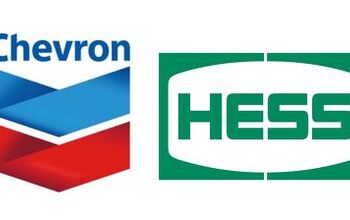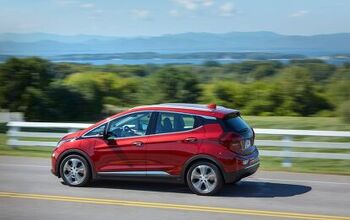Trump Flips Script on Who's Paying to Fix Our Crumbling Infrastructure

Last week, I defended the president’s honor and lamented that I probably wouldn’t have a follow-up opportunity for some time. As it turns out, that claim is in no danger of becoming a falsehood. On Tuesday, President Trump told lawmakers he was ditching a key aspect of his planned $1 trillion infrastructure package — namely, who is going to pay for it.
Spoiler alert: its going to be taxpayers.
The White House previously envisioned a strategy where private investors would be lured into rebuilding roadways, bridges, and rail networks with promises of federal backing and a less-daunting approvals process. But now it’s saying partnerships between the private sector and federal government might not work.
“We spend $6 trillion in the Middle East and we have potholes all over our highways and our roads … so we’re going to take care of that. Infrastructure — we’re going to start spending on infrastructure big,” Trump said in February. “[It’s] not like we have a choice. It’s not like, oh gee, let’s hold it off.”
However, Trump did hold off and details on the plan were delivered piecemeal, lacking specific detail. Some even criticized the president for intentionally stalling on the infrastructure proposal while his administration focused on its repealing the Affordable Care Act. When it finally arrived as part of the proposed 2018 budget in May, the plan existed as a six-page fact sheet that outlined $200 billion in direct federal spending over the next decade. However, it wasn’t particularly coherent on how the money would be spent or where it would be coming from. Four months later and we’re only starting to see a clearer picture.
Reported by The Washington Post, the president is having difficulties envisioning how that $200 billion would be procured via private-sector partnerships. It seems the administration will likely force states and localities to foot most of the bill. However, the proposed tax incentives and streamlined approval policy will remain intact for businesses that want to take advantage of them.
I suppose there isn’t any real reason to be surprised by this turn of events. The administration’s infrastructure plan never had any concrete mechanism for ensuring incentives wouldn’t be used on projects that would have been built without them. In fact, the earliest proposals showed that investors could collect on tax breaks for projects already in existence.
It’s hard not to feel like you’ve been taken for a ride on this one. But assuming private firms would pour money into non-profitable government works projects was probably always a pipe dream. Businesses like to make money and the best we could have hoped for is a plethora of unnecessary toll roads.
One potential idea to circumvent that scenario involved forcing corporations to bring home the $2 trillion in profits secured overseas at a massively discounted tax rate. That money would then be allocated for infrastructure spending. However, the administration has given no indication it will pursue that option in earnest.
Instead, it’s throwing its hands up in the air and saying it’s leaving “all options on the table.” But, according to Bloomberg, Trump specifically stated that infrastructure spending wouldn’t be connected to any plan that would target offshore corporate profits on Tuesday.
While none of this amounts to an official decree, it does indicate there will probably be more pressure on individual states to repair their own crumbling roadways. But local governments don’t really have the kind of money necessary to do this. When the Federal Aid Highway Act was passed, states footed 10 percent of the bill while the remaining 90 was left for the federal government to pay for through taxes on fuel, automobiles, trucks, and tires.
Thankfully, gas prices are pretty low right now.

A staunch consumer advocate tracking industry trends and regulation. Before joining TTAC, Matt spent a decade working for marketing and research firms based in NYC. Clients included several of the world’s largest automakers, global tire brands, and aftermarket part suppliers. Dissatisfied with the corporate world and resentful of having to wear suits everyday, he pivoted to writing about cars. Since then, that man has become an ardent supporter of the right-to-repair movement, been interviewed on the auto industry by national radio broadcasts, driven more rental cars than anyone ever should, participated in amateur rallying events, and received the requisite minimum training as sanctioned by the SCCA. Handy with a wrench, Matt grew up surrounded by Detroit auto workers and managed to get a pizza delivery job before he was legally eligible. He later found himself driving box trucks through Manhattan, guaranteeing future sympathy for actual truckers. He continues to conduct research pertaining to the automotive sector as an independent contractor and has since moved back to his native Michigan, closer to where the cars are born. A contrarian, Matt claims to prefer understeer — stating that front and all-wheel drive vehicles cater best to his driving style.
More by Matt Posky
Latest Car Reviews
Read moreLatest Product Reviews
Read moreRecent Comments
- Rob Woytuck Weight is also a factor for ferries which for instance in British Columbia, Canada are part of the highway system.
- Ajla I guess some people were big fans of Milli Vanilli and Real Dolls (don't Google that at work) but I have a very large problem with the fake engine sounds and fake transmissions. If you turn them off does it stay off forever or does it turn back on whenever you go into sport mode?
- Probert That X frame was a killer. No nostalgia for these things to be honest. Yup - life of the party....
- Kjhkjlhkjhkljh kljhjkhjklhkjh starting to see the concern about how many pro Hyundai blurbs and bits are popping up on the site. It is a very detailed review and well written ...
- Urlik Multi level parking garages are going to be issues as well.


































Comments
Join the conversation
“Real Clear Politics” this ain’t. However, with a clickbait headline like what we got, I suppose the ensuing melee was inevitable. A long time ago, the funding of roads and bridges was set up as a paygo enterprise. Motor fuel taxes were supposed to pay for it, and the Federal Highway Trust Fund was the pot that held the money. Arguments about funding were pretty much limited to disputes between car owners (represented by the AAA) and long haul truckers as to whether the truckers paid their “fare share” given the extra wear caused by their vehicles’ heavy weight. Now the Trust Fund pays for things like subways and other mass transit projects, and bike routes and doesn’t have enough to pay for roads. And electric car owners get to use the roads for free, including the HOV lanes. And we all think we pay too much taxes, so an increase in the motor fuel tax is a non-starter in both state capitals and Washington. Of course the reason people think they too much taxes is because, when they look around, they don’t see much to how for it. And the reason for that is that, unlike any time in the past, the bulk of the federal budget goes to “transfer payments”: welfare, Medicare, Medicaid, Social Security, etc. Not guns, planes, space ships, parks, bridges and other tangible stuff. So, it’s no wonder that everything is a giant clusterfk. Private companies are legally precluded from engaging in the kinds of dishonest accounting routinely practiced by governments at all levels. So if they’re going to pay for a road, their financial calculations need to be sound-which means the project has to have a reasonable certainty of paying for itself within the defined time period. So . . . Tolls.
Set your deadline far enough in the future, and I suppose anything's possible. JFK saying "we will go to the Moon in eight years" was ambitious, and achieved. Nichols saying "all new cars on sale in California by 2050 will be electric" is not so ambitious by comparison, given that we're talking about a 33 YEAR TIMELINE and technology that's already commercially available off the shelf.